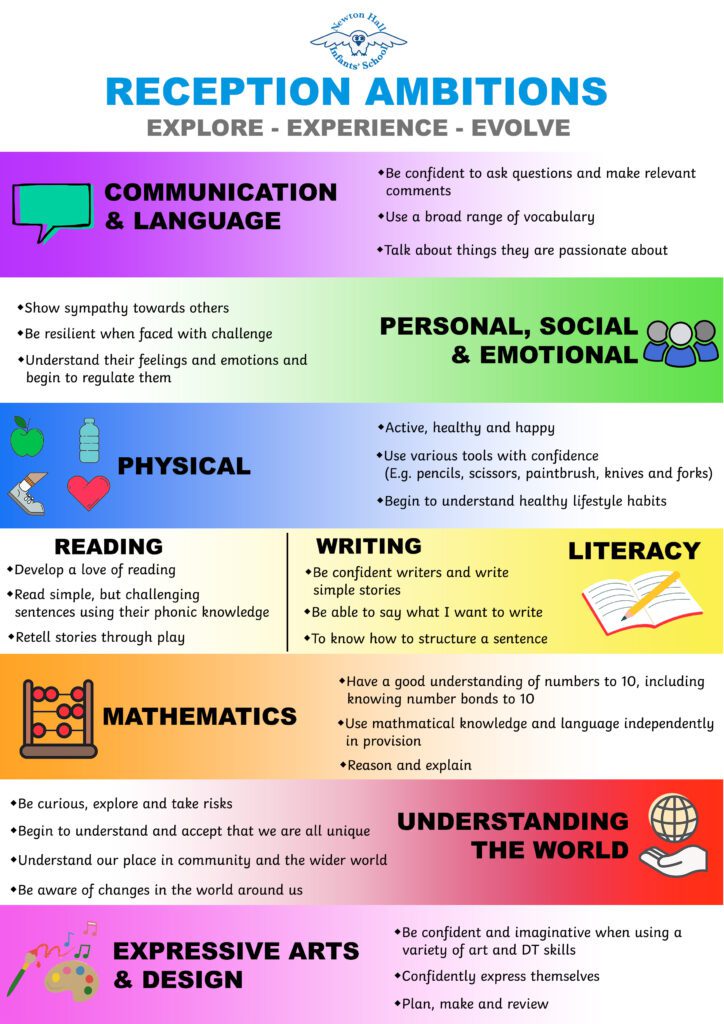Early Years Foundation Stage
Early Years Lead – Miss Hill
What is the EYFS?
The Early Years Foundation Stage (EYFS) statutory framework is a government document that all schools and Ofsted-registered early years providers in England must follow. It sets standards for the learning, development, and care of your child from birth to 5 years old. The standards ensure your child will learn and develop well and is kept healthy and safe.
What Will My Child Be Learning?
The EYFS framework outlines seven areas of learning and development and Educational Programmes.
There are three prime areas of learning, which are particularly important for your child’s development and future learning:
- Communication and language
- Physical development
- Personal, social and emotional development
There are four specific areas of learning:
- Literacy
- Mathematics
- Understanding the world
- Expressive arts and design
These 7 areas are the basis for our curriculum. Careful thought is given to inform our enabling environments (indoors and outdoors), to provide resources, activities and learning opportunities to meet each child’s unique requirements.
Our curriculum is very flexible and responsive to follow children’s interests and those totally unplanned learning opportunities that sometimes come out of the blue, such as it unexpectedly snowing!

How Will My Child Be Learning?
Young children learn through play. The EYFS refers to the Characteristics of Effective Learning. These are:
- Playing and exploring
- Active learning
- Creating and thinking critically
You can find more information on the Characteristics of Effective Learning below.
Overview – Characteristics of Effective Learning, and Areas of Learning and Development
The Characteristics of Effective Learning and the Prime and Specific Areas of Learning and Development are all inter-connected. Different elements of learning are identified in the EYFS, to make the complex picture of learning clearer. But children’s learning is not compartmentalised and many or all of these elements are in action at the same time … Continue reading Overview – Characteristics of Effective Learning, and Areas of Learning and Development
Formal assessments take place during the EYFS:
• Statutory Reception Baseline Assessment (at the start of the reception year)
• Early Years Foundation Stage Profile (at the end of the EYFS)
Your child’s Early Years Foundation Stage Profile will be shared with you at the end of the EYFS. This will inform you of your child’s progress and whether they have met or are continuing to work towards their early learning goals (ELGs). There are 17 ELGs your child is expected to achieve by the end of the EYFS.



